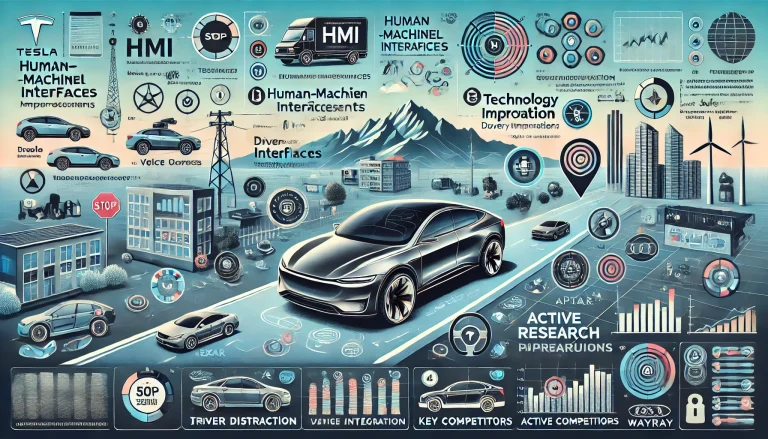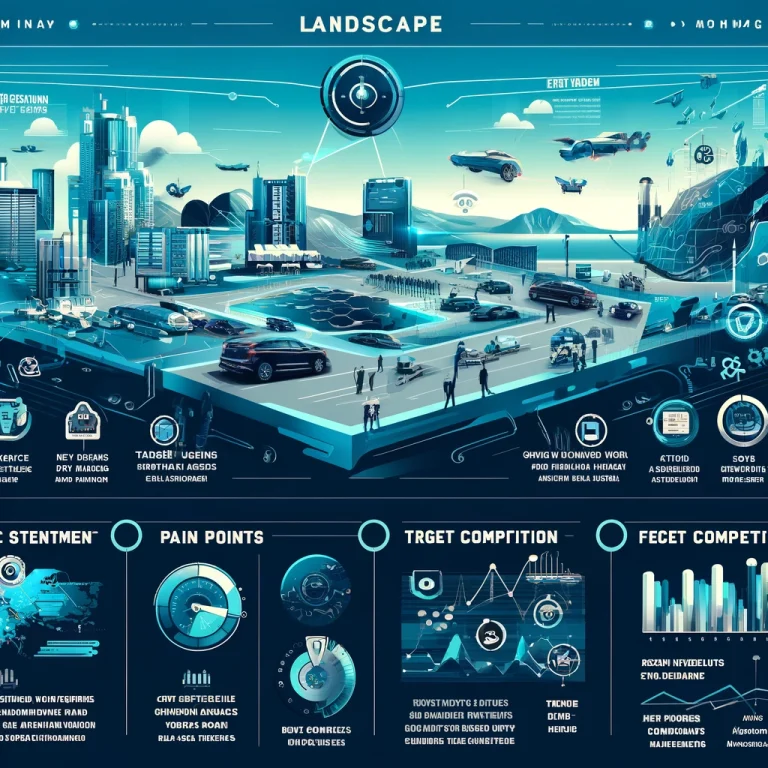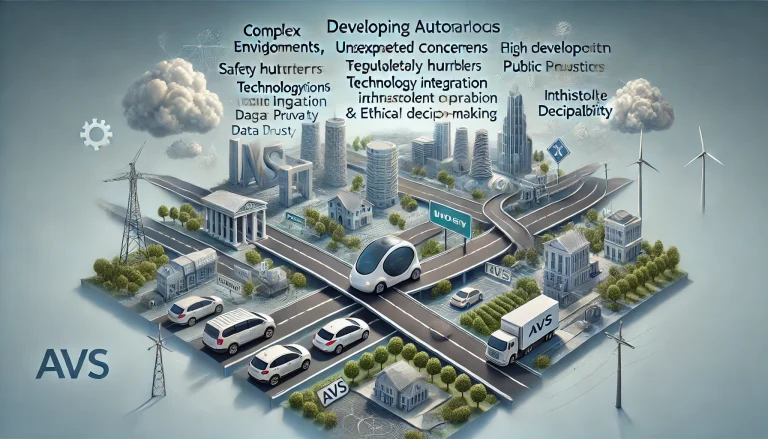Problem Statement
The automotive industry faces the ongoing challenge of adhering to a multitude of regulations encompassing emissions standards, safety protocols, and consumer protection laws. With regulations continuously evolving, automotive manufacturers must remain vigilant and adaptable to maintain compliance. This necessitates significant investment in research, technology, and processes, posing a substantial burden on the industry.
Pain Points
- Complexity of Regulations: Navigating the intricate web of global and regional regulations.
- Frequent Updates: Keeping pace with constantly changing regulatory requirements.
- High Costs: Significant financial investment required for compliance.
- Technology Adaptation: Integrating new technologies to meet stringent standards.
- Resource Allocation: Allocating sufficient resources to monitor and implement changes.
- Penalties for Non-Compliance: Risk of hefty fines and legal consequences.
- Consumer Trust: Maintaining consumer confidence in regulatory adherence.
- Cross-Border Issues: Managing compliance across different countries and regions.
- Documentation and Reporting: Ensuring meticulous record-keeping and timely reporting.
- Supply Chain Coordination: Ensuring all suppliers and partners comply with regulations.

Future Vision
The future vision for addressing regulatory compliance in the automotive industry includes the development of advanced, integrated systems for real-time monitoring and reporting. Leveraging AI and machine learning, these systems will provide predictive analytics to anticipate regulatory changes and adapt accordingly. The vision also includes fostering collaboration across the industry to standardize compliance processes and reduce redundancy, ultimately leading to more sustainable and efficient manufacturing practices.
Use Cases
- AI-Powered Compliance Monitoring: Real-time tracking of regulatory changes and automated adjustments in production processes.
- Blockchain for Supply Chain Transparency: Ensuring end-to-end compliance across the entire supply chain.
- Predictive Analytics: Forecasting potential regulatory changes and preparing proactively.
- Digital Twins: Simulating manufacturing processes to ensure compliance before implementation.
- Compliance Training Programs: Using VR and AR for immersive employee training on regulatory standards.
- Sustainability Reporting: Automated generation of sustainability reports to meet environmental regulations.
- Consumer Safety Alerts: Real-time notifications to consumers about safety recalls or updates.
- Automated Documentation: Streamlining the documentation process to ensure accurate and timely compliance reporting.
- Collaborative Platforms: Industry-wide platforms for sharing best practices and compliance strategies.
- Regulatory Sandboxes: Testing new technologies in a controlled environment to ensure compliance.
Target Users and Stakeholders
User: Automotive Manufacturers
Age Group: All ages
Gender: All genders
Usage Pattern: Continuous use for compliance monitoring and reporting
Benefit: Ensures adherence to regulations, avoids fines, maintains consumer trust
Stakeholders
- Automotive Manufacturers: Directly responsible for compliance.
- Regulatory Bodies: Government agencies enforcing regulations.
- Consumers: End-users concerned about safety and environmental impact.
- Suppliers: Partners in the supply chain needing to comply with regulations.
- Dealers: Retailers ensuring that vehicles meet regulatory standards.
- Environmental Groups: Advocating for stricter emissions and safety standards.
- Insurance Companies: Assessing risks based on compliance levels.
- Financial Institutions: Investors evaluating compliance risks.
- Technology Providers: Offering solutions for compliance management.
- Legal Firms: Providing legal assistance and representation in compliance matters.

Key Competition
- Bosch: Leading provider of compliance-related technologies.
- Continental: Offers advanced systems for emissions and safety compliance.
- Magna International: Provides comprehensive compliance solutions.
- Denso: Focuses on innovative compliance technologies.
- ZF Friedrichshafen: Integrates compliance features into automotive systems.
Products/Services
- Regulatory Compliance Software: For real-time monitoring and reporting.
- Emission Control Systems: To meet environmental regulations.
- Safety Compliance Solutions: Ensuring adherence to safety standards.
- Supply Chain Management Tools: For maintaining compliance across the supply chain.
- Training and Certification Programs: For educating staff on regulatory requirements.
Active Startups
- ClearRoad: Focuses on road usage and emissions tracking.
- Upstream Security: Provides cybersecurity solutions for automotive compliance.
- Otonomo: Offers data services for regulatory compliance.
- Ridecell: Specializes in fleet management and compliance.
- Apex.AI: Develops software for automotive compliance.
- Arbe Robotics: Provides radar-based safety compliance solutions.
- Motional: Focuses on autonomous vehicle compliance.
- Cognomotiv: Real-time monitoring for vehicle health and compliance.
- Rivian: Electric vehicle manufacturer with a focus on regulatory compliance.
- Aurora: Develops self-driving technology with integrated compliance features.
Ongoing Work in Related Areas
- AI and Machine Learning: For predictive compliance monitoring.
- Blockchain: Enhancing supply chain transparency.
- Digital Twins: Simulating and testing for compliance.
- IoT Integration: Real-time data collection and compliance tracking.
- Sustainability Initiatives: Meeting environmental regulations.
- Cybersecurity: Ensuring data protection and compliance.
- Advanced Driver Assistance Systems (ADAS): Compliance with safety standards.
- Electric Vehicles (EVs): Adhering to emissions regulations.
- Connected Vehicles: Real-time compliance monitoring.
- Smart Infrastructure: Supporting regulatory compliance through advanced infrastructure.
Recent Investment
- Bosch: Invested €1 billion in compliance-related technologies in 2023.
- Continental: Allocated $500 million for R&D in compliance solutions in 2022.
- Magna International: Invested $300 million in compliance software development in 2023.
- Denso: Committed $400 million to compliance innovations in 2022.
- ZF Friedrichshafen: Directed $600 million towards compliance technology in 2023.
Market Maturity
The market for regulatory compliance in the automotive industry is maturing rapidly, driven by stringent global regulations and increasing consumer awareness. Companies are investing heavily in innovative technologies to stay ahead of compliance requirements, creating a competitive yet collaborative environment focused on sustainability and safety.
Summary
The automotive industry is under constant pressure to comply with a myriad of regulations, ranging from emissions standards to safety requirements. The complexity and frequent updates of these regulations pose significant challenges, including high costs, technology adaptation, and resource allocation. Key stakeholders, including manufacturers, regulatory bodies, consumers, and suppliers, are all affected by these compliance demands.
Current competitors such as Bosch, Continental, and Magna International lead the market with advanced compliance technologies, while startups like ClearRoad and Upstream Security bring innovative solutions to the table. Ongoing advancements in AI, blockchain, and IoT are paving the way for more efficient compliance processes.
Recent investments in compliance technologies highlight the industry’s commitment to staying ahead of regulatory changes. The market is maturing rapidly, with a strong focus on sustainability and safety, ensuring that automotive manufacturers can meet current and future regulatory demands.


